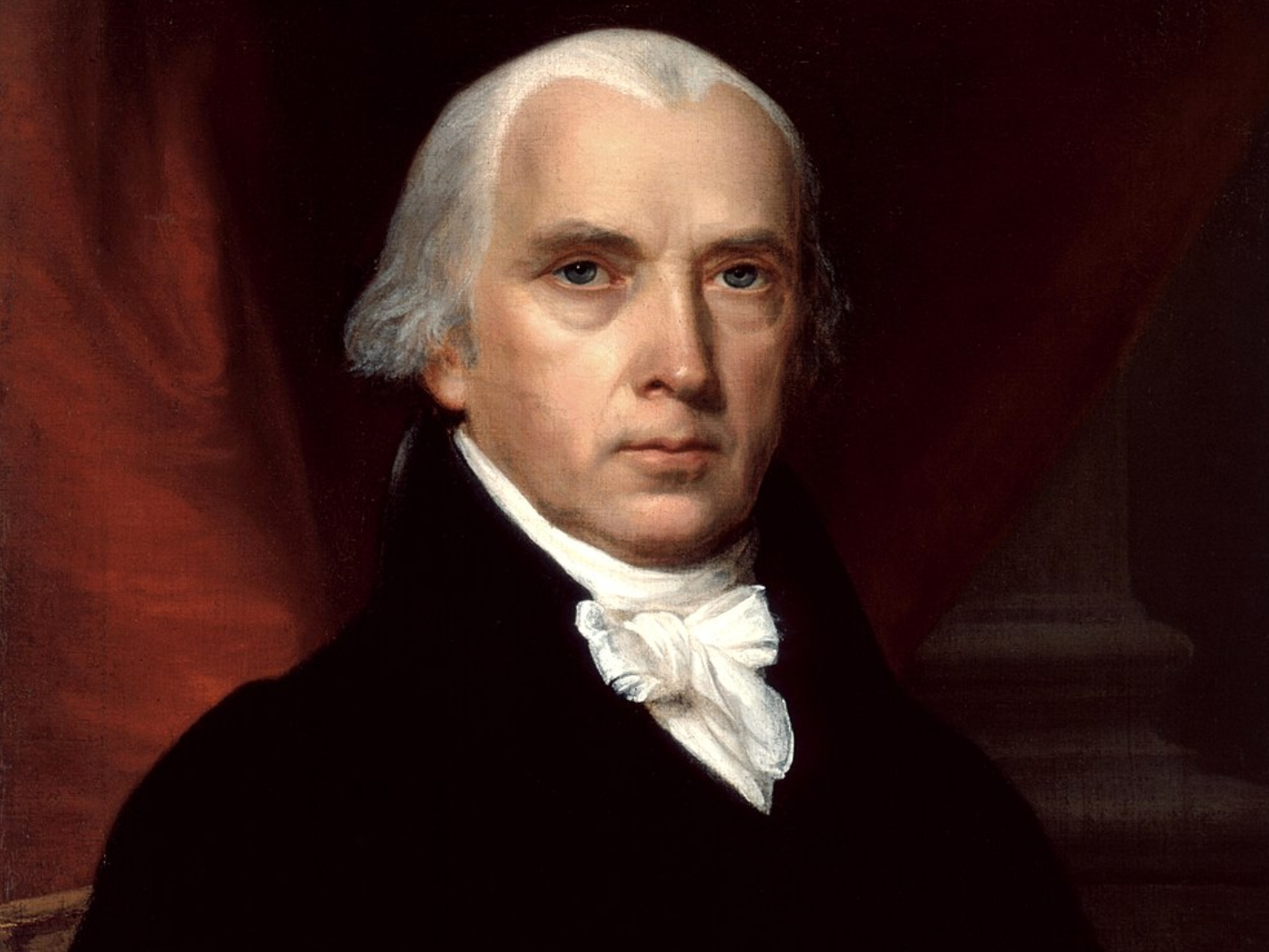
What is federalism? Historians and political philosophers will bicker about its origins and definitions. I like the natural-law approach—think Locke and Madison in the Anglo tradition. It’s tangible, comparable, and verifiable. Further, any policy decisions related to federalism can be kept simple. A warning, however: I come from the field of literature. I’ve read too many poems and novels to think my definitions have obvious boundaries. From my perspective, natural law simply dictates common sense in a dire situation. Likewise, my examples are adequate only for specific purposes, and blurry on occasion, and imperfect.
Here’s my definition: Federalism is a political philosophy that highlights the vitality of the competitive distribution of power in political relations. Specifically, it is the combination of incentives to split power structures so that we can all get along. This theory is most related to theories of government. Here, for pedagogical as well as philosophical reasons, I’ll relate it to everything from interpersonal relationships to business operations. There will be exceptions; I seek a general description, not dogma.
At the level of individuals, for example, a federalist approach to marriage discards other keys to its success as helpful but insufficient. Sex and shared hobbies are good, but we acknowledge foremost that two minds are better than one. This isn’t complicated. One spouse benefits from the other spouse’s perspective in order to cover certain blind spots. Imagine a husband balancing a check book and asking his wife to limit frivolous purchases. Imagine a wife distracting her husband before he says the wrong thing at a cocktail party. This is why fighter pilots have wingmen, and why you want someone covering your six on patrol. It makes the task at hand more feasible. There are psychosexual reasons why a three-person marriage is not likely to last, just as there are natural reasons why a marriage with children is probably a better bet. With a child involved—i.e., a shared investment in the future—both parties have another reason to make peace and to properly coordinate their shared power over each other.
External pressures can also promote unity. A couple living in the wilderness of upstate New York around 1840 have their own reasons to cooperate: a threat (a bear), a shared interest (firewood), additional necessary skills (shooting, herding, cooking, planting). Substitute a saber-toothed tiger, a drought, and a rival tribe over the river, and cooperation seems even more “natural.” I say “cooperation” in lieu of tyranny or control. Somebody might need to make a final decision on critical matters now and again, but consultation, debate, and cooperation are the more normal and logical ways to deal with a shared problem.
To be honest, we don’t even need that much nature. Federalism also embraces social realism. A couple in a church or a political party or a club from which neither wishes to be expelled has a good reason to work on its marriage. Alec Baldwin’s dark lines as FBI agent Ellerby in The Departed (2006) echo this logic: “Marriage is an important part of getting ahead. You don’t want anyone thinking you’re a homo. Married guy seems stable. People look at a wedding ring and think: someone can stand the son of a b*tch.”1 Marriage here is a naturally socializing mechanism. It confirms advantages and checks irresponsible behavior; it lays the groundwork for cooperation and an efficient distribution of responsibilities.
When it comes to business, we may observe the organization of Elon Musk’s international conglomerate Tesla, Inc. The sites of Tesla’s factories surely relate to markets and raw materials. A lot of people in China buy cars. A factory there makes sense. Argentina has a lot of lithium. A factory there makes sense.
But Musk’s business model for Tesla also seeks to mitigate political risk, thereby preserving operational integrity and corporate value. An international company risks devastation if it has all its eggs in one basket. Tesla builds factories in a competitive fashion, but also in order to fashion competition. A factory in the U.S. benefits from a factory in China, and vice versa. If the political powers of either nation want to extort Tesla, say, by threatening to close or nationalize its factories or by collecting unwanted taxes on its cars, then the company can increase production at another facility. This goes beyond negotiation. Chinese authorities who boast of Tesla’s productivity in Shanghai as proof of their ingenuity and their political prowess are more cooperative if they know about a rival production facility across the Pacific. Are we sensing a principle?
If you think about it, China might even help secure Argentine lithium for Tesla, and not just for the factory in Shanghai but also for the one in California. Conversely, if China is interested in Argentina, it might be because there is a lot of lithium there. Perhaps Chinese officials want to help Chinese companies that compete with Tesla; but if their American rival moves out of China, then Argentina might find exporting to China less convenient. What looks like industrial or geopolitical conflict is not necessarily so.
Tesla built its third and fourth factories in Texas and Germany. Texas is a natural rival for California within the American federal system. It has no income tax; its state government is less intrusive. If California regulators prove too aggressive, production can be shifted to Texas. A factory in Germany adds more competition by bringing a European player onto the field. And what better way to keep a Texan honest than a new factory across the Río Bravo in Mexico? Running an international business carries more complications than a domestic business. But it also has advantages. A global operation can use different countries for its factories to protect itself against extortion, all the while encouraging efficiency at each installation. Some politicians will buck at this and attempt to ramp up regulations; others will learn to pipe down, albeit often the hard way.
[More from Eric Clifford Graf: “Reforming the Humanities in Florida”]
Returning to government, we can more clearly see why federalism tries to ensure operations are divided both vertically and horizontally. The central government and the local government compete with one another, and different regional governments compete with others. A general overarching authority exists, but its powers remain limited since it confronts multiple rivals who inhabit the same ecosystem. Indeed, the only reason this central authority exists at all is because those rivals have recognized the danger that they pose to each other if they’re left unchecked. They all see the need for a referee. And this is the same logic behind the division and limitation of the powers of the referee. Rival powers want to preserve their independence; to do so, they want to survive conflicts with each other but also with any authority they might create to resolve conflicts.
Families might find it good to cooperate at the municipal level. A well-governed township is good for families. Tocqueville marveled at this feature of New England in his epic Democracy in America (1835/40). The skill with which Americans form associations and cooperate with each other at the local level is a defining feature of the nation Tocqueville sought to understand. Similarly, the federal system explains much of America’s success. States agree to the federal system because it protects their local independence. Moreover, this creates a robust atmosphere that improves all involved. To this day, if New York becomes a problem, you move to Texas; if California takes too much of your money, you go to Florida.
Somewhere between business and government are regulatory commissions. Take, for example, the federally structured Railroad Commission of Texas (RRC). It has undergone a complicated evolution; it exhibits various transformations, vacillations between regulation and deregulation, and shifts in its relations with other regulatory authorities. Even so, its brand of “pragmatic federalism” is regarded as a success. A cooperative form of “regulated regulation” was deemed to be in the interest of nearly all who stood to benefit from the oil and gas industry.
Oil was discovered in Texas in 1901, but in the 1930s a competitive panic threatened to deplete field pressures and destroy a lot of wealth. It was a case of what economists call the “tragedy of the commons.” Since the oil was in underground reservoirs reachable by multiple players, a rush ensued to access as much of it as possible as early as possible—this risked squandering a lot of long-term wealth. Being imperfect creatures, the first place most Texans will drill for oil absent a mediator is up against our neighbor’s fence line. The RRC responded to this crisis by setting distances between wells and “prorating” production such that everyone got to market their product in proportion to other independent producers.

Beaumont, TX, after 1901
Modeled after the RRC, OPEC is an ingeniously modified federalist system. OPEC has complex, asymmetrical dynamics. Geopolitical unrest often reduces its power, but when it works, Saudi Arabia acts as the swing producer who punishes cheaters by flooding the market and rewards cooperation by maintaining price stability in a profitable range.
| 2023 Population | GDP | Per capita income | Median household income | |
|---|---|---|---|---|
| México | 126M (+320%) | $1.3T | $19,740 | $13,989 |
| Texas | 30M | $1.9T (+46%) | $34,255 (+74%) | $61,874 (+342%) |
Population and economic statistics of México and Texas: Virtue or Structure?
The world order itself is essentially federal. It’s messy, no doubt, but if the alternative to rival nations like China, Russia, Iran, Venezuela, and France is a giant, global version of the United States of America, well, experience suggests there would be costs to that. The different kingdoms and peoples of the former Spanish Empire imply another mode of federalism. Rich Latin Americans can escape economic and political persecution in Argentina, Colombia, or Venezuela by moving to Spain or Florida. They can’t yet take all their wealth and property with them, but international banking and Bitcoin help. Governmental competition is emerging in this context. Latin America is essentially unveiling itself as a larger, later, and more unruly version of the United States.
For example, Javier Milei—an economic rationalist running for president of Argentina—has argued for less government, a return to the ideas of nineteenth-century constitutional reformer Juan Bautista Alberdi. He has pointed to modern Chile as a model of good governance and economic success. Argentines finally appear prepared to embrace the virtues of protecting liberty and property. Similarly, besieged by a socialist central government that ignores the extortions of its nationalist separatist political allies, the conservative Community of Madrid under President Isabel Díaz Ayuso has emerged as a beacon of low taxation and deregulation. Other regions are taking notice and imitating her good governance. It would seem as if regional comparisons will favor liberalism again soon.
Some countries do seem less devoted to cooperation than others. I’m not saying that real human traumas don’t play a role or that bad cultural habits and ideas don’t limit progress. Russia seems forever traumatized by snow, vodka, and its massive death count in WWII, such that character competes with government as the source of social malaise. Even so, can we expect government to repair a broken character? And do we trust government to pick the best ideas to teach, the best habits to subsidize? It’s a better bet to leave the alleviation of national traumas to psychologists and let multiple governments decide which ideas and habits to promote. Generally, over time, cultures and societies should divide responsibilities and powers, creating competition among businesses and nodes of government. This applies nationally and internationally. Compete, compare, and adjust. Compete some more.
[More from Eric Clifford Graf: “Novels, Constitutions, and Mineral Rights”]
The point is that nobody’s moral goodness on its own, not even fair competition per se, but a shared desire for fair competition is what gives rise to a federal system, which then keeps corruption and tyranny at bay. Successful governance owes to agents of federalism and federal systems, not mandated virtues or the mythical goodness of a people. Many of the Founders were great men, but surely some of them were wicked. Indeed, the essence of The Federalist Papers is reducible to James Madison’s assertion that men are not angels, ergo, “Ambition must be made to counteract ambition.” This includes the Founders themselves. Arguments to the contrary are paradoxical rejections of their worldview. The geopolitical threat of dissolution brought out the best in the Founders. Yet they also knew that virtue is not a governing principle. Men are not angels, and some of us are downright diabolical.
I have friends on the Left, as well as on the moderate, libertarian, and Christian Right, who shake their heads and wag their fingers at humanity. They believe that a lack of intelligence, venal character, and forgotten virtues are the sources of society’s problems. They have different priorities, but the gist of their complaints is that too many Americans have a flawed personality or a poor education. If people would just behave themselves, they argue, if people would just calm down, be good, and reason their way through problems, life would improve.
But ability, behavior, and character are personal attributes. It’s a good idea to improve them if you want to succeed in life, if you want to sleep well, free of resentment and remorse. When it comes to public policy, however, they’re dead ends. It would be nice to avoid policies that incentivize poor virtues. Without shared morality, we approach anarchy, and social transaction costs grow prohibitive (see Adam Smith’s The Theory of Moral Sentiments, 1759). But which comes first? Shared morality or a governing structure that reinforces shared morality? Either way, how to achieve the social structure for morality is difficult and debatable. Here’s a start: if an answer to a social problem is not obvious to everyone, then we should avoid unilateral decisions. Therefore, the proper policies to correct immoral and ignorant behavior are best disclosed by a federal system. This is the idea behind the United States as a “laboratory of states” (see the Tenth Amendment). Best practices arise through competition. Many different solutions can be tried, and people will vote with their feet.
Alexander Hamilton abhorred the malignant behavior of most Greeks in Thucydides’s The Peloponnesian War (late fifth century BC). But the point of Hamilton’s abhorrence is not that such behavior should be avoided (it cannot be) but that we must account for it. It’s good to have reason on hand, but appeals to reason won’t overcome our animal natures. The real question is how do we find a sociopolitical mechanism that holds everyone to account? The answer is by way of trial and error. Thus, governing structures themselves must be made to compete. Recognize that evil and threats abound in the world—there’s no going back, and nobody gets to rule alone.
A Universe of death, which God by curse
Created evil, for evil only good,
Where all life dies, death lives, and Nature breeds,
Perverse, all monstrous, all prodigious things,
Abominable, inutterable, and worse
Than Fables yet have feign’d, or fear conceiv’d,
Gorgons and Hydra’s, and Chimera’s dire. (2.622–28)

Gustave Doré, “Gorgons and Hydras, and Chimeras dire” (Milton, Paradise Lost, 2.628)
Milton’s Paradise Lost (1667) offers a way to understand the natural law of federalism (see Madison F51). This realism incorporates the threatening and incentivizing notions of exile and expulsion. God has cast us out; there is no sovereign. We’re all evil now, and we’re all threatened by monsters around us and in our midst. Worse, we’re at the margins of civilization. All these troubles, however, make us free to be good to each other again. To the degree that politics is religion, and religion a form of natural law, Milton’s verses express a theology of federalism. A divided governing principle emerges from the Protestant experience of the Fall. Once we accept that we’re mortal and flawed, we can dismiss virtue as a policy option, and we can work out a shared and split governing structure to accommodate this reality. We’re not angels; we’re more like gorgons, hydras, and chimeras.
1 This is a rather hellish piece. From an artist’s point of view, the vulgarity of Ellerby’s comments is akin to gorgons, hydras, and chimeras, or the president, the congress, and the judiciary.